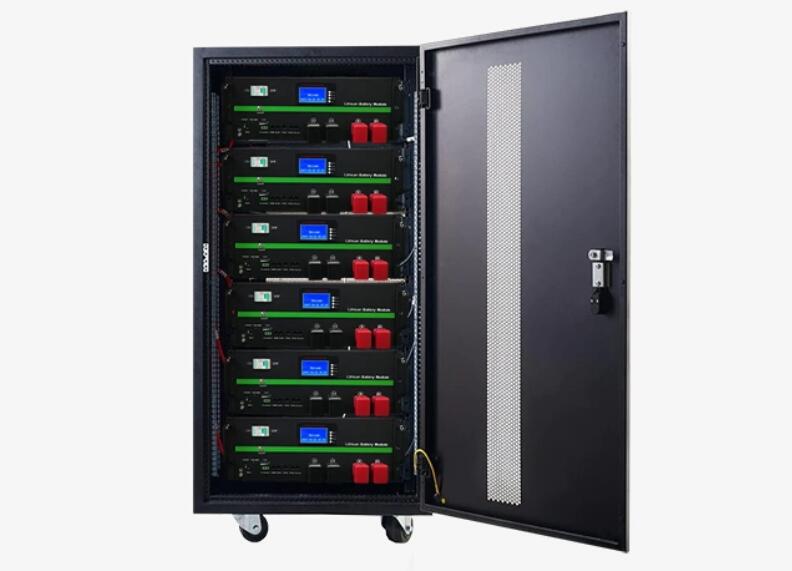In the ever-evolving landscape of battery technology, the competition for the most efficient, reliable, and sustainable power source is relentless. Among the contenders, lithium-based batteries have long been the standard-bearers, but a new challenger has emerged: the LiFePO4 battery. In this comprehensive exploration, we delve into the question: Is LiFePO4 battery better than lithium?

Understanding LiFePO4 Technology
LiFePO4, or lithium iron phosphate, stands out among lithium-based batteries due to its unique chemical composition. Unlike traditional lithium-ion batteries, which typically use cobalt oxide or nickel manganese cobalt oxide cathodes, LiFePO4 batteries utilize iron phosphate as the cathode material. This difference results in several key advantages.
Superior Safety Profile
One of the most significant advantages of LiFePO4 batteries is their exceptional safety profile. Unlike other lithium-based batteries prone to thermal runaway and combustion, LiFePO4 batteries are inherently more stable. This increased stability is attributed to the robust chemical bonds within the iron phosphate cathode, which are less prone to decomposition, even under extreme conditions.

Longer Cycle Life
Another distinguishing feature of LiFePO4 batteries is their extended cycle life. While traditional lithium-ion batteries may degrade after 500 to 1000 charge-discharge cycles, LiFePO4 batteries can endure well over 2000 cycles without significant capacity loss. This durability makes them ideal for applications requiring frequent and prolonged usage, such as renewable energy storage and electric vehicles.
Efficient Energy Conversion
LiFePO4 batteries boast high energy efficiency, thanks to their low internal resistance and minimal self-discharge rate. This translates to more efficient energy conversion during charging and discharging processes, resulting in less wasted energy and longer-lasting performance.
Comparing Voltage Variants: 24V vs. 48V LiFePO4 Batteries
When considering LiFePO4 batteries, voltage is a crucial factor that determines their suitability for specific applications. Two common variants are the 24V and 48V LiFePO4 batteries, each offering distinct advantages depending on the requirements of the system.

24V LiFePO4 Battery: Versatility and Accessibility
The 24V LiFePO4 battery strikes a harmonious balance between power output and versatility. This voltage configuration finds its niche across a diverse spectrum of applications, catering to everything from modest off-grid solar setups to the energy demands of marine vessels and recreational vehicles. Its practical voltage level accommodates the requirements of numerous devices and appliances, rendering it a favored option for both residential and commercial installations.
48V LiFePO4 Battery: High Performance and Scalability
For applications demanding higher power output and scalability, a 48V LiFePO4 battery is often preferred. This higher voltage configuration allows for more efficient energy transfer over longer distances and enables the integration of larger renewable energy systems, such as grid-tied solar installations and commercial backup power solutions. Additionally, the 48V setup reduces the required current, minimizing losses and maximizing system efficiency.
Exploring Capacity: The Role of 200Ah LiFePO4 Batteries
Capacity is another critical aspect to consider when evaluating LiFePO4 batteries, and the 200Ah variant offers ample storage for demanding applications.
200Ah LiFePO4 Battery: Optimal Energy Storage
A 200Ah LiFePO4 battery provides substantial energy storage capacity, making it ideal for applications requiring prolonged autonomy and high discharge rates. Whether powering off-grid cabins, mobile workstations, or electric vehicles, the 200Ah configuration ensures reliable performance and extended operation between recharges. Additionally, the inherent stability and longevity of LiFePO4 chemistry ensure consistent performance over countless cycles, reducing maintenance requirements and total cost of ownership.
Conclusion
In the quest for the ultimate energy storage solution, LiFePO4 batteries emerge as a clear frontrunner, offering unparalleled safety, longevity, and efficiency compared to traditional lithium-ion batteries. Whether opting for a 24V or 48V configuration, or harnessing the robust capacity of a 200Ah variant, LiFePO4 batteries empower industries and individuals alike to embrace sustainable energy practices without compromising performance or reliability. As we continue to advance towards a greener, more electrified future, LiFePO4 batteries stand ready to unlock the full potential of renewable energy systems and electrified transportation infrastructure.


You must be logged in to post a comment.